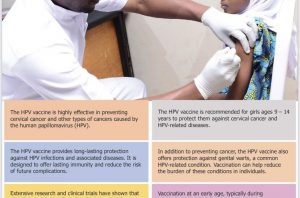Revolutionizing Global Clinical Trials: Unleashing the Power of African Countries and the Medical Women’s Association
As we navigate through the complexities of modern medicine and the rapid advancement of medical science, the realm of global clinical trials has taken on increasing significance. However, there’s been a multi-layered challenge – ensuring that these clinical trials are not predominantly concentrated in high-income countries. On their own, African nations carry a significant portion of the world’s disease burden yet remain under-represented in global clinical trials.
In order to address this imbalance and encourage greater participation, I propose a paradigm shift revolving around five pragmatic strategies. I anticipate that the implementation of these will also be a catalyst for the Medical Women’s Association to be more actively involved, fostering more engagement from African countries.
#### 1. Capacity Building
To begin with, the capacity of African nations to host clinical trials needs to be strengthened. We need to invest in research infrastructure, training programs, and develop sustainable operational models. These can be facilitated via international collaborations, blending global expertise with local insights. In this context, the Medical Women’s Association can play a crucial role. By creating programs for skill transfer and conducting workshops across the continent, they can enhance the competence of African researchers and healthcare workers to manage and conduct trials.
#### 2. Regulatory Harmonization
The processes and legal requirements surrounding clinical trials must be harmonized across the continent. Doing so would reduce administrative burdens and make Africa more attractive to sponsors. Here, international bodies and the Medical Women’s Association should collaborate with African governmental bodies and local institutions to promote unified legislative frameworks.
#### 3. Community Engagement
Meaningful community engagement is essential to foster trust and enhance participation. A detailed understanding of the local cultural context is needed to communicate effectively about the trials’ benefits and potential risks. The medical women’s association can leverage their female health professionals’ network to spearhead these communication stratagems, thereby enhancing inclusivity while advocating for the rights and wellbeing of the participants.
#### 4. Feasibility Studies
Conducting feasibility studies beforehand helps identify potential pitfalls and challenges in implementation. This could also determine the readiness of African countries to host clinical trials. The feasibility studies pave the way for better planning, allocation of resources, and high-quality data.
#### 5. Incorporation of Technology
Rapidly evolving technologies like telemedicine and mobile health (mHealth) applications can transform clinical trial management. By embracing these technologies, we can overcome logistical hurdles, facilitate data collection, improve trial efficiency, and ensure patients’ active engagement from remote areas.
Lastly, it is essential to recognize that inclusive clinical trials are not just about data and numbers; they’re about ensuring every individual, regardless of their geographical origin, has an equal opportunity to contribute to and benefit from advances in medical science. With these strategies in motion, both African nations and the Medical Women’s Association can play pivotal roles in ensuring the benefits of global clinical trials reach every corner of the world and restructure the narrative concerning Africa’s participation in global health research.
Clinical trials is important for improving health care in Africa
Unlocking the full potential of African countries and the Medical Women’s Association in global clinical trials requires a concerted effort from all stakeholders involved. By building partnerships, raising awareness, promoting inclusivity, and leveraging technology, we can pave the way for a more diverse and representative research landscape. Let us seize this opportunity to drive positive change, improve healthcare outcomes, and create a future where everyone has an equal chance to contribute to and benefit from medical advancements. Together, we can revolutionize global clinical trials and make a lasting impact on the health and well-being of people worldwide.
African clinical trials consortium will take things to the next level
In the pursuit of advancing medical research and improving healthcare outcomes worldwide, it is crucial to ensure diverse representation in clinical trials. However, one group that remains underrepresented is the population of African countries. Additionally, the valuable insights and contributions of the Medical Women’s Association often go unrecognized in global clinical trials. It’s time to change the narrative and unlock the immense potential of both African countries and the Medical Women’s Association for greater engagement in these trials. In this blog post, we will explore some creative ideas and effective strategies to drive engagement and foster inclusivity.






